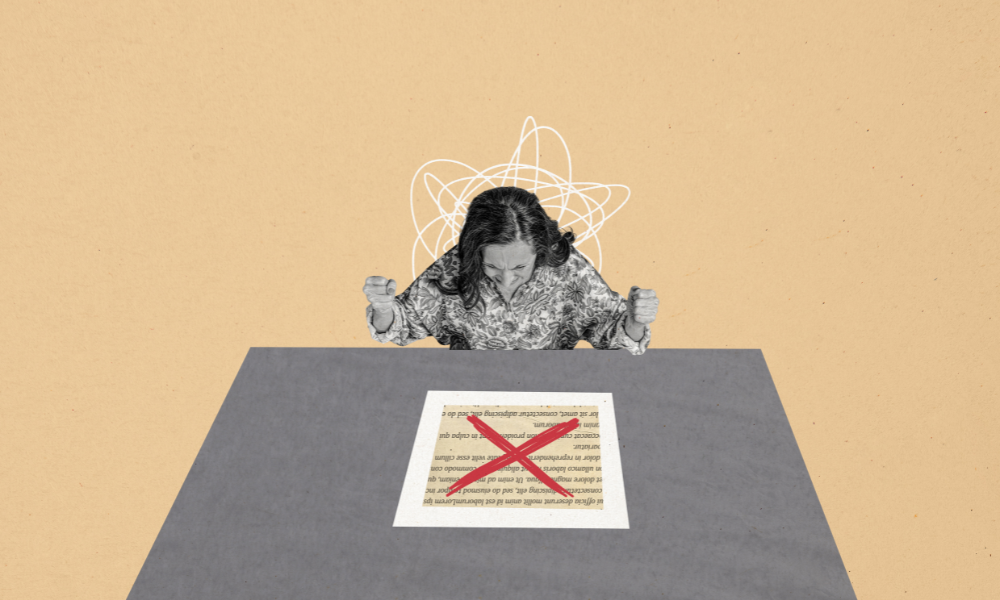Can you dispute a will in Canada? Absolutely—but it’s not as simple as saying, “That’s not fair!” When a loved one passes, emotions run high, and sometimes, so do questions about the will. If something doesn’t feel right, you might have legal grounds to challenge it.
In this article, we’ll discuss the grounds and the process of disputing a will. We'll discuss the laws governing sch disputes and the ways an estate lawyer can help.
Can you dispute a will in Canada?
As long as the grounds are valid and the process is properly followed, you can dispute a will in Canada. This can probably be your spouse’s, child’s, or friend’s. However, it also matters who's contesting, since not just anyone can dispute a will.
The laws related to wills, estates, and succession govern the process of disputing a will. In Canada, each province and territory have their own laws, as these matters are not found in federal laws.
As such, it’s important if you want to dispute a will to talk to a lawyer who knows the law that applies to your case.
Here’s a look at how disputing a will works in British Columbia:
If you need help in disputing the will of your loved one, you can reach out to the best personal tax planning and estate lawyers in Canada as ranked by Lexpert.
Who can dispute a will
Not everyone can dispute the will of another without the necessary legal standing. Below are the usual persons who are allowed by the court to contest a will:
- spouse (legally married or common-law)
- children (excluding stepchildren)
- beneficiaries in the will
- heirs under intestacy laws
The rule of thumb is that only those who have financial interest in the estate of the testator can dispute the testator’s will.
However, some provincial or territorial laws may restrict this list to certain individuals. By way of example, British Columbia’s Wills, Estates, and Succession Act (WESA) says that only a spouse or a child of the will-maker can file a claim for variation of wills.
Burden of disputing a will
As always, the law requires the plaintiff to prove their claim—not the other way around. Of course, this also applies when you want to challenge a will; you have the onus to prove the grounds you set forth to invalidate the will.
This requires preparing pieces of evidence to work in your favour. For instance, when you claim that the testator is of unsound mind when the will was created, your evidence may include medical records and testimonies from mental health professionals.
Power of attorney cannot override a will
One misconception is that a power of attorney (POA) can be used to challenge or override a will.
While a will takes effect once the testator (the one who made the will) dies, the POA loses its effect upon the death of the grantor (the creator of the POA). In cases where a person executed both a will and POA, the effectivity of these two will generally not overlap.
Although a POA’s attorney can also be the will’s executor or estate trustee, the contents of a POA still cannot be used to invalidate what is written in a will.
What are the grounds to dispute a will?
Below are some of the common grounds for disputing a will under Canadian laws:
- Testamentary incapacity
- Lack of knowledge and approval
- Insufficient support for an heir
- Incorrect formal requirements
- Fraud and undue influence
We’ll discuss these grounds below; we’ll also discuss some of the erroneous grounds that may not be used when disputing a will. This video talks about some of these grounds when challenging a will in Ontario:
Bookmark our Legal FAQs page for more articles related to wills, estate planning, and other areas of the law.
1. Testamentary incapacity
One of the important requisites for the validity of a will is that the testator must have legal and testamentary capacity to create a will. Testamentary capacity means that the testator:
- is not a minor, subject to certain exceptions
- is of sound mind at the time the will’s writing
- understands the nature and effects of their will
- knows their specific properties to be disposed
- know who their heirs and beneficiaries are
- does not have any psychological disorder
Under the provincial and territorial laws, there is a presumption of testamentary capacity in favour of the testator, which you must rebut if you want to dispute their will. After successfully presenting the incapacity, the other party will also present their evidence to show otherwise.
2. Lack of knowledge and approval
Related to testamentary incapacity, another ground to dispute a will is when the testator lacks knowledge or approval. This happens when the testator:
- did not understand the contents of their will
- had a mistaken belief about the will’s legal effects
- did not really approve that the document be their will
In these cases, you may be allowed to present extrinsic evidence to dispute the will. This can include testimonies showing allegations that the testator lacked knowledge and approval in making their will.
3. Insufficient support for an heir
Every person has a legal responsibility to support their spouse and dependents, even after their death. This includes the provisions of a person’s will, which must provide enough for those they will be leaving behind.
So, when a person purposely left nothing for their spouse or dependent heirs, that would be a ground to dispute their will. In some instances, even adult children can challenge a will based on this, especially when there are sufficient assets.
4. Incorrect formal requirements
To be valid, a testator must follow the formal requirements of wills, as provided by law. These formalities, again, would depend on provincial and territorial laws. It will also depend on whether the will is a formal/attested, notarial, or holographic will, as each type has different formalities.
For instance, under Alberta’s Wills and Succession Act (WSA), a will is valid if it follows these requirements:
-
requirements for both formal and holographic wills: made in writing and signed by the testator, which shows their intent to make the document as their own will
-
if formal will: testator signed the will in the presence of two witnesses, who are both present at the same time; and each witness signs the will in the testator’s presence
-
if holographic will: signed by the testator; and, entirely written in the own handwriting of the testator, without the necessity of witnesses, like in a formal will
When any of these formal requirements are not followed, that would be valid grounds to dispute the will.
Saving grace for wills
However, there are instances under common law and statutes that can still allow a will even if it does not follow these formal requisites.
One example of this is section 37 of Alberta’s WSA. It says that upon application, the court can declare that a will is valid even if it did not follow the formal requirements, as long as:
- there is clear and convincing evidence
- the evidence proves the testator’s intent
- the testator intends the subject will to be their will
These saving provisions place upon the court a wider discretion whether to allow a will or not. For this, courts consider two things: the wishes of the testator and if the strict interpretation of these laws would unnecessarily invalidate these wishes.
5. Fraud and undue influence
In making a will, there can be fraud, duress, and undue influence in the following cases:
- the testator was forced to create a will or to change their existing will
- when the signature of the testator was forged
- an heir or beneficiary influenced the testator on the will’s provisions
Again, it is up to you to show the specific instances where the allegations of fraud and undue influence happened.
Exceptions: What are not grounds
If you’re still wondering if you can dispute a will, you may want to be wary of the following grounds which are not sufficient in doing so:
-
Verbal promises: In succession law, what is not written in the will cannot be considered as part of the testator’s wishes. This means that you cannot come to court and claim that the testator verbally promised something to you just to invalidate their will.
-
Will is not fair: What is “fair” can be subjective in many ways. However, for the purpose of measuring fairness, the courts will look at the law, and the circumstances surrounding the heirs, the beneficiaries, and the testator. For this reason, simply saying that the will is unfair is not a very reliable ground to dispute it.
What is the process of disputing a will?
Here’s a simplified process if you want to dispute a will in Canada:
- Consult a lawyer, preferably an estate lawyer in your province/territory
- Gather evidence and witnesses for your objection
- File an application or notice of objection with the court
You must also act quickly so that the filing of your application or notice will not be barred by court procedure’s time limits. In Ontario, for instance, you must file your notice of objection before a Certificate of Appointment of Estate Trustee is issued.
Costs in contesting a will in Canada
Naturally, you would have to spend when contesting a will in Canada. While actual costs may vary from one case to another, here’s a summary of the possible expenses you must prepare if you want to challenge someone else’s will:
-
lawyer’s fees: although some lawyers would offer contingency fees for their services, this may not include other fees, such as the initial consultation fees
-
court fees: this will vary in every province and territory, which is on top of the lawyer’s fees and other personal costs
Many factors will also affect the total amount you’ll be spending; if your case is too complex or contentious, then you may have to prepare your wallet for larger costs.
Disputing a will: when final wishes look flimsy
If you think a will wasn’t fair or someone influenced it, you may be able to challenge it. After all, just because it’s a “last will” doesn’t mean it’s the last word. But as you go through these things of whether you can dispute the will of your loved one, it’s still better to consult a legal professional, such as an estate lawyer in your province or territory.
Subscribe to the free Lexpert newsletter that keeps you up to date on your questions on Canadian laws, such as “Can you dispute a will
Related Articles:
Contesting a will in British Columbia
How lawyers can help clients contest a will in Alberta, Canada
Contesting a will in Ontario: What are the changes to watch out for?





